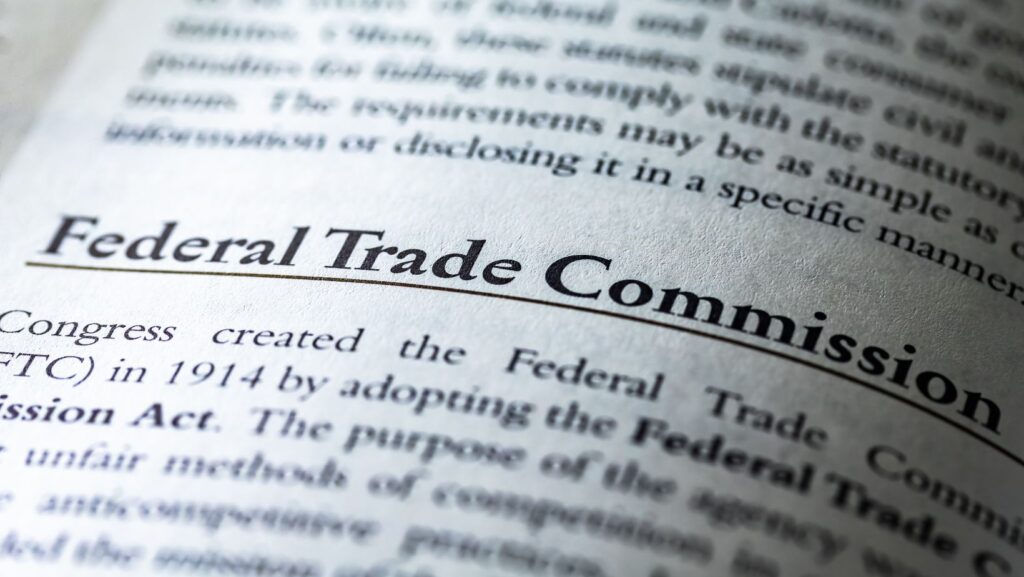Table of Contents
Federal Trade Commission APUSH Definition
The Federal Trade Commission (FTC) is a regulatory agency that plays a crucial role in promoting fair competition and protecting consumers in the United States. Let’s delve into the origins of this important institution.
1. Creation of the FTC
The FTC was established in 1914 with the enactment of the Federal Trade Commission Act. With the rise of industrialization and the growing power of big business during the late 19th and early 20th centuries, there was a pressing need for a government agency to curb anticompetitive practices and ensure fair trade. The FTC Act was a response to these economic challenges.
2. Mission and Responsibilities
The primary mission of the FTC is to promote consumer protection and prevent unfair business practices that could harm the economy. The commission achieves this by enforcing a variety of federal laws, including the Federal Trade Commission Act, the Clayton Antitrust Act, and the Robinson-Patman Act. The FTC also has the authority to investigate mergers and acquisitions that may lead to monopolistic behavior.
3. Powers and Jurisdiction
The FTC has been granted broad powers to carry out its mandate. It has the authority to conduct investigations, issue subpoenas, gather evidence, and bring legal action against companies engaged in deceptive or unfair practices. The agency’s jurisdiction covers virtually all industries and sectors in the United States, except for certain regulated industries such as banks and transportation.
The creation of the FTC marked a significant turning point in the regulation of business practices in the United States. By safeguarding fair competition and protecting consumers, the FTC continues to play a vital role in ensuring a level playing field for businesses and promoting economic growth.
The Federal Trade Commission Act of 1914
The creation of the Federal Trade Commission (FTC) in 1914 marked an important milestone in American history. As the primary federal agency responsible for promoting fair competition and protecting consumers from unfair business practices, the FTC played a crucial role in shaping the landscape of commerce in the United States.
The Federal Trade Commission Act of 1914 was established to address growing concerns about the concentration of economic power and the need to regulate business practices. Signed into law by President Woodrow Wilson, it empowered the FTC to investigate and enforce laws related to unfair competition and deceptive trade practices.
This landmark legislation gave the FTC three main responsibilities:
- Preventing unfair methods of competition: The FTC was tasked with ensuring a level playing field for businesses by prohibiting practices that could harm consumers or hinder competition. This included actions such as price-fixing, monopolies, and deceptive advertising.
- Supervising trade practices: The FTC was authorized to investigate and take action against companies engaging in anti-competitive behaviors. This could involve conducting hearings, issuing cease-and-desist orders, or seeking injunctions to stop unfair practices.
- Promoting consumer protection: The FTC was given the authority to protect consumers from deceptive or fraudulent business activities. It had the power to regulate advertising and marketing practices, ensuring that companies provided accurate information to consumers.
The establishment of the FTC brought significant changes to the business landscape. It provided a legal framework for regulating trade practices, promoting fair competition, and safeguarding consumer interests. Over the years, the FTC has evolved and adapted to the changing needs of the marketplace, addressing emerging issues related to privacy, data security, and the digital economy.
Today, the FTC continues to be a vital watchdog, monitoring the business practices of companies across various industries, combating unfair competition, and safeguarding consumer welfare. It remains committed to promoting competition, protecting consumers, and maintaining the integrity of the marketplace.

Conclusion
The Federal Trade Commission (FTC) plays a vital role in upholding fair competition and protecting consumers in the marketplace. Through its investigations and enforcement of antitrust laws, the FTC ensures that anti-competitive behavior is addressed and that businesses are held accountable for their actions. By promoting competition and consumer welfare, the FTC helps create a level playing field for businesses and fosters innovation and choice for consumers.
In addition to its enforcement efforts, the FTC also educates businesses and consumers about antitrust laws, empowering them to make informed decisions and avoid engaging in or falling victim to anti-competitive practices. This educational aspect of the FTC’s work is crucial in maintaining a healthy marketplace that benefits both businesses and consumers.
Overall, the FTC’s role in enforcing antitrust laws is essential for maintaining fair competition, protecting consumers, and ensuring a vibrant and thriving marketplace. By diligently carrying out its responsibilities, the FTC contributes to a robust economy where businesses can thrive and consumers can enjoy the benefits of choice, innovation, and competitive pricing.




